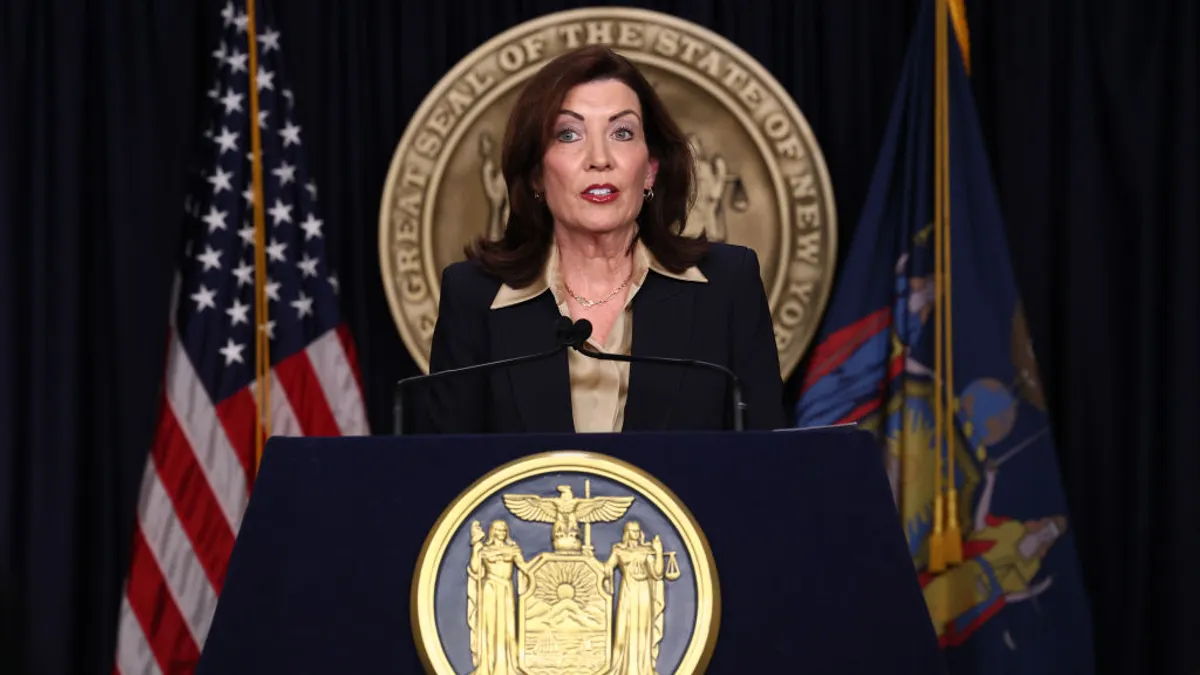Technology is becoming a bigger part of all types of business and government, yet it’s hardly made a blip on either presidential candidate’s radar so far. Fortunately, there are a number of U.S. Senators and Representatives working to ensure major technology issues get the attention they deserve.
From cybersecurity to encryption to H-1B visa reform, here are five U.S. legislators to watch when it comes to technology legislation today and in the future.
Sen. Mark Warner, D-VA
In his early career, Sen. Mark Warner, D-VA, founded Columbia Capital, a venture capital firm, where he helped several technology and telecommunications companies get their start. During his political career, Warner has consistently demonstrated a keen interest in technology issues and cybersecurity.
In June, he and Sen. Cory Gardner, R-CO, co-founded the Senate Cybersecurity Caucus, focused on keeping members of the Senate and their staff informed about new developments in cybersecurity, according to Warner’s website.
Warner is particularly focused on protecting citizen data and has been a vocal critic of large-scale cyberevents such as the massive DDoS attack on DNS provider Dyn in late October, the Yahoo data breach, and the Target data breach in 2013.
Following the Dyn attack, Warner asked the Federal Communications Commission, the Federal Trade Commission and the Department of Homeland Security’s National Cybersecurity & Communications Integration Center for details on how to prevent cybercriminals from compromising internet-connected consumer products to conduct DDoS attacks.
"The weak security of many of the new connected consumer devices provides an attractive target for attackers, leveraging the bandwidth and processing power of millions of devices, many of them with few privacy or security measures, to swamp internet sites and servers with an overwhelming volume of traffic," Warner said.
According to his website, Warner is also currently working on bipartisan legislation to "create a comprehensive, nationwide and uniform data breach standard requiring timely consumer notification for breaches of financial data and other sensitive information."
Rep. Will Hurd, R-TX
Rep. Will Hurd, R-TX, currently serves as Chairman of the Oversight and Government Reform Subcommittee on Information Technology and as a member of the Committees on Homeland Security. Hurd has a long history in technology. He majored in Computer Science at Texas A&M University and later worked as a senior advisor for a cybersecurity firm.
Hurd was recently recognized by the Information Technology Industry (ITI) Council as one of four ITI Tech Legislators of the Year. ITI praised Hurd as "a leading advocate and ally for the technology sector."
Hurd "helped foster a greater understanding of encryption’s role in security and forged a bipartisan solution to a very complicated cybersecurity issue that will serve to strengthen cyberspace," said ITI President and CEO Dean Garfield.
Hurd is also a strong proponent of improving technology education, calling for a "Cyber National Guard," which would incentivize young people to become cyber professionals.
"It’s time that we treat the process of attracting and maintaining quality talent into cyber realm the same way we do with the armed services," Hurd wrote on his website. "That means federal student loan forgiveness and training that translates to the private sector after service. How a program like this is implemented needs to be discussed in continued conversations between the public and private sectors."
Hurd hosted an exploratory hearing on the topic in September.
Rep. Ted Lieu, D-CA
The federal government spends almost 75% of its $80 billion IT budget on operations and maintenance of legacy systems, a May report from the Government Accountability Office found. Even worse, spending on legacy systems has actually increased over the last seven years, the GAO found, which means billions of dollars that could have gone into modernizing federal IT systems were instead used to keep outdated systems running.
Rep. Ted Lieu, D-CA, has made modernizing federal government IT systems one of his priorities. He was one of seven cosponsors of the Information Technology Modernization Act, which was introduced in April and incorporated as a component of the Cybersecurity National Action Plan. The proposed legislation authorizes the use of a revolving fund to help modernize legacy federal IT systems.
Lieu has also been involved in the debate over encryption sparked by the Apple/FBI debacle earlier this year. Lieu and Rep. Blake Farenthold, R-TX, introduced the Ensuing National Constitutional Rights for Your Private Telecommunications Act (ENCRYPT Act) of 2016 in February, which would preempt state and local government encryption laws and ensure "a uniform, national policy for the interstate issue of encryption technology," according to Lieu’s website.
"A patchwork of 50 different encryption standards is a recipe for disaster that would create new security vulnerabilities, threaten individual privacy and undermine the competitiveness of American innovators," Lieu said in an announcement. "It is bad for law enforcement, bad for technology users, and bad for American technology companies."
He is also a member of the Subcommittee on Information Technology.
Sen. Chuck Grassley, R-IA
Sen. Chuck Grassley, R-IA, has been a long-time proponent of H-1B visa reform. He and Sen. Dick Durbin, D-IL, first introduced legislation to revamp the H-1B program in 2007. But the issue was pushed to the forefront again last year after Southern California Edison workers complained that more than 500 of them were laid off so the company could outsource labor at a lower cost. Soon after, Disney hired IT services contractors that use H-1B workers. Disney IT employees said they had to train visa-holding replacements in order to receive a severance.
"The H-1B visa program was never meant to replace qualified American workers, but it was instead intended as a means to fill gaps in highly specialized areas of employment that cannot be filled by Americans," Grassley said in an announcement. "The abuse of the system is real, and media reports are validating what we have argued against for years, including the fact that Americans are training their replacements. There’s a sense of urgency here for Americans who are losing their jobs to lesser skilled workers who are coming in at lower wages on a visa program that has gotten away from its original intent. Reform of the H-1B visa program must be a priority."
The latest Grassley-Durbin bill, introduced last November, includes a priority system for visa distribution that favors advanced degree holders and those paid a high wage. It also limits the use of H-1B workers by offshore outsourcing IT services firms by prohibiting them from hiring added visa workers if more than 50% of their employees are already on H-1B or L-1 visas. The bill would also give the Department of Labor more authority to investigate and audit employers, and require users to provide "extensive statistical data" about the H-1B program.
Sen. Sheldon Whitehouse, D-RI
In May, Sen. Sheldon Whitehouse, D-RI, and Sens. Lindsey Graham, R-SC, and Richard Blumenthal, D-CT, introduced a bill that would give law enforcement agencies and courts expanded authority to combat a broader array of botnets.
Botnets, or "zombies," can harness "innocent" computers or internet-connected devices to automatically transmit viruses or launch DDoS attacks. The botnet concern has grown recently as cybercriminals have used them to launch massive DDoS attacks. In September, French hosting firm OVH was hit with two concurrent DDoS attacks attributed to botnets made up of 145,607 compromised IoT devices. And in October, DNS provider Dyn was hit with a sophisticated, highly distributed attack involving "10s of millions of IP addresses."
Currently, the Department of Justice can only pursue botnets involved in fraud or illegal wiretapping. The proposed legislation could change that, and would also make the act of selling or providing access to botnets a criminal offense.
Whitehouse is also interested in improving healthcare IT. Earlier this year, he authored key reforms to bipartisan legislation designed to help consumers evaluate how health information technology systems perform. Transparent Ratings on Usability and Security to Transform Information Technology (TRUST IT) would establish a rating system consumers could use to compare different health information technology systems in the areas of security, usability and interoperability and require the Office of the National Coordinator for Health IT to publish the results on its website.
"Not all health IT products work well, and that has real consequences," said Whitehouse in an announcement. "A health IT rating system will give consumers a better sense of which products deserve their business and create an incentive for companies to innovate."
Healthcare organizations are not known to have highly-secure IT systems. Given the recent increase in ransomware attacks on healthcare organizations, ensuring better security is paramount. In March, Medstar patients were turned away because the hospital chain did not have the resources to treat them after ransomware locked its systems.



















